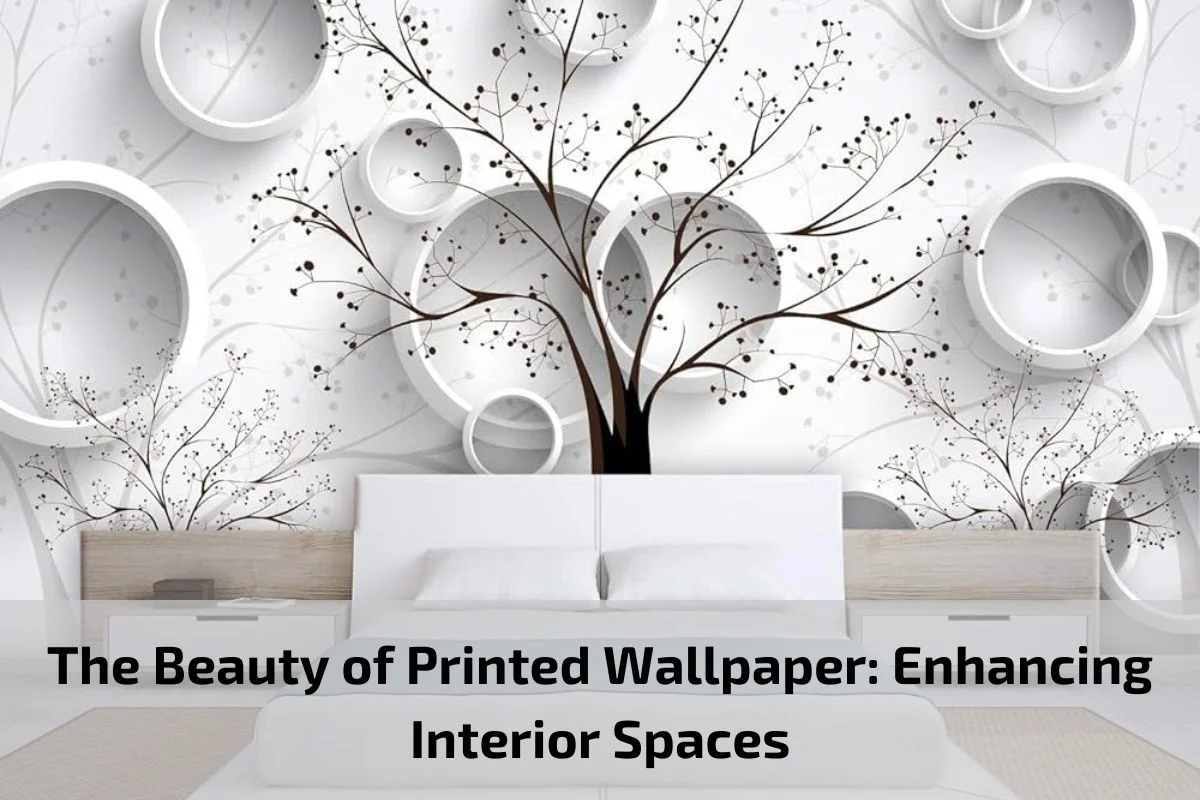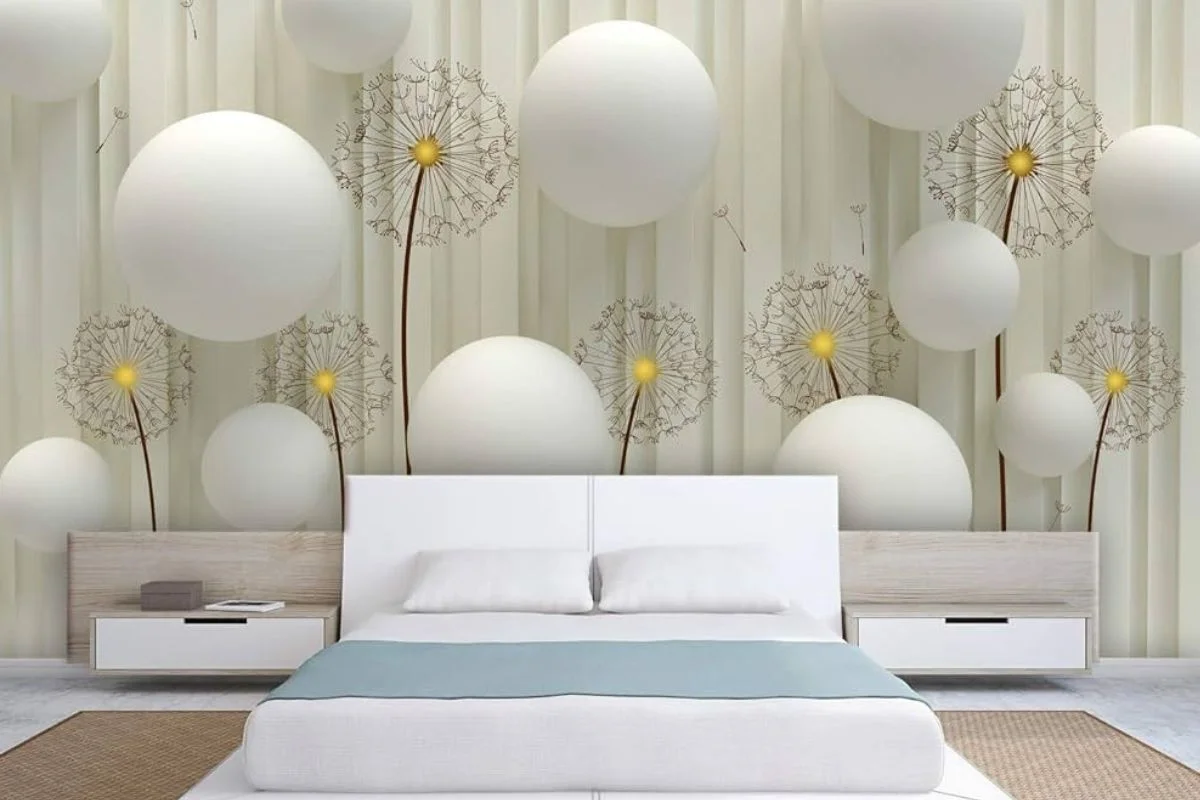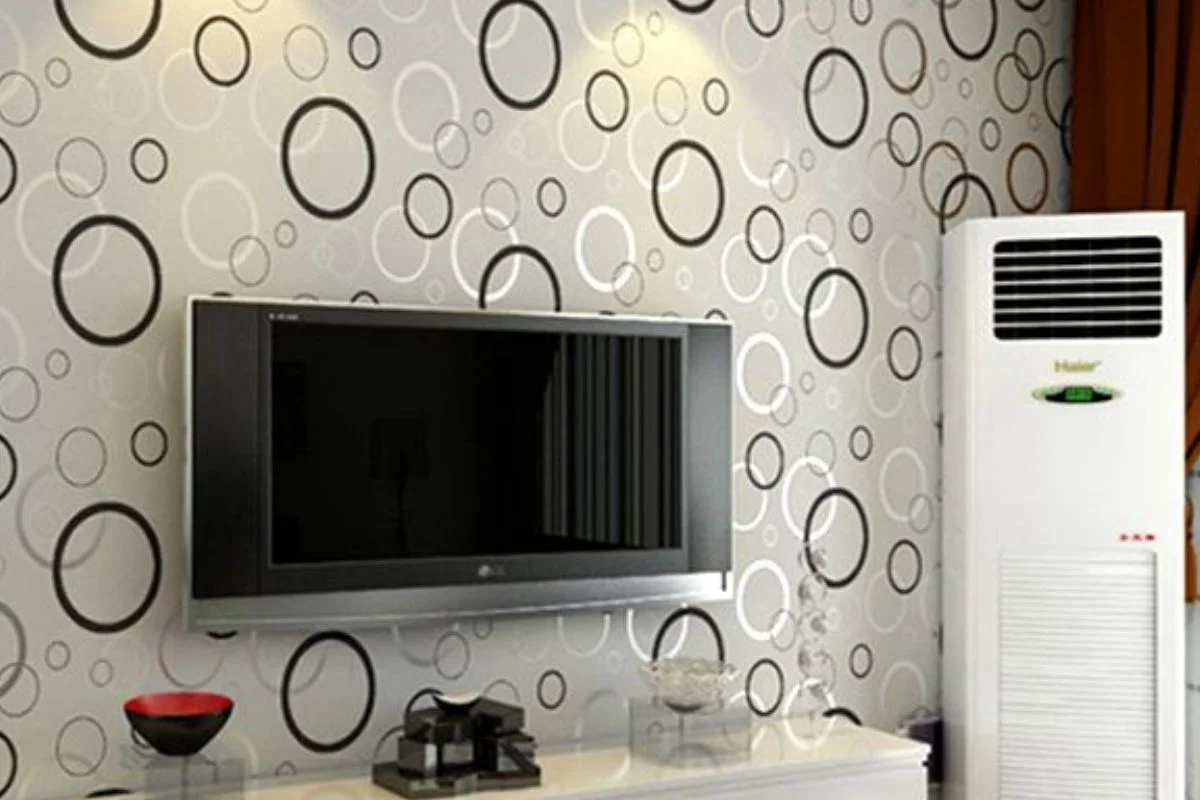
Printed wallpaper stands as a timeless and versatile design element that has the power to transform any interior space into a captivating and personalized environment. With its endless array of patterns, colors, and motifs, printed wallpaper offers a unique opportunity to enhance the aesthetic appeal of homes, offices, and commercial establishments alike.
In this exploration of the beauty of printed wallpaper, we delve into the myriad ways in which this decorative material can elevate interior spaces, from adding depth and dimension to creating focal points and enhancing ambiance. Whether it’s a bold and vibrant print or a subtle and sophisticated pattern, printed wallpaper has the ability to inspire creativity, evoke emotions, and make a lasting impression on anyone who enters the space.
Join us as we embark on a journey to discover the beauty of printed wallpaper and explore its transformative effects on interior design. From traditional floral prints to contemporary geometric patterns, printed wallpaper offers endless possibilities for expressing individual style, creating cohesive design schemes, and infusing personality into any room.
Brief overview of the printed wallpaper in interior design
Printed wallpaper has long been an essential element in interior design, offering a versatile canvas for expressing creativity and transforming spaces. Originating centuries ago, printed wallpaper initially served as a luxury reserved for the elite, featuring intricate designs handcrafted by skilled artisans. Over time, advancements in printing technology democratized access to wallpaper, allowing for mass production and a wider range of designs.
In interior design, printed wallpaper plays a pivotal role in setting the tone and ambiance of a room. From classic floral patterns to bold geometric designs and whimsical motifs, printed wallpaper offers endless possibilities for adding visual interest and personality to walls. It serves as a powerful tool for creating focal points, enhancing architectural features, and establishing cohesive design schemes.
Moreover, printed wallpaper is not limited to traditional wall applications; it can also be used in innovative ways to accentuate ceilings, create custom furniture pieces, or adorn unexpected spaces. Its versatility and adaptability make it a favorite among designers and homeowners alike, allowing for endless experimentation and customization.
Importance of printed wallpaper
Printed wallpaper holds significant importance in interior design for several compelling reasons:
Personal Expression: Printed wallpaper allows individuals to express their unique personalities and tastes through their living spaces. With a vast array of designs, patterns, and colors available, homeowners can choose wallpaper that resonates with their style preferences, whether it’s classic, contemporary, whimsical, or eclectic.
Visual Impact: Wallpaper has the power to transform the look and feel of a room dramatically. Bold patterns and vibrant colors can create focal points, add depth, and visually expand small spaces, while subtle designs can impart elegance and sophistication. The visual impact of printed wallpaper can elevate the overall aesthetic of a room and leave a lasting impression on visitors.
Enhanced Ambiance: The choice of wallpaper can significantly influence the ambiance and mood of a space. For example, calming nature-inspired prints can evoke a sense of tranquility in bedrooms or living areas, while bold and dynamic patterns can inject energy and excitement into entertainment spaces or offices. By selecting the right wallpaper, homeowners can create atmospheres that align with the intended function and desired ambiance of each room.
Versatility: Printed wallpaper is incredibly versatile and can be used in various ways to achieve different design effects. It can be applied to entire walls for a dramatic statement or used selectively to accentuate architectural features, such as alcoves or columns. Additionally, wallpaper can be paired with complementary paint colors, textures, or other decorative elements to create visually engaging compositions.
Concealment of Imperfections: One of the practical benefits of wallpaper is its ability to camouflage minor imperfections in walls, such as cracks, dents, or uneven surfaces. By providing a smooth and uniform backdrop, printed wallpaper can help create a polished and finished look, even in older or less-than-perfect spaces.
Durability and Longevity: Modern printed wallpapers are often made from durable materials that are resistant to fading, staining, and wear. Unlike paint, which may require frequent touch-ups or repainting, high-quality wallpaper can maintain its appearance for years with minimal maintenance, making it a cost-effective and long-lasting investment.
Ease of Installation and Removal: While some may perceive wallpaper installation as a daunting task, advancements in wallpaper technology have made the process more accessible and user-friendly. Many wallpapers come pre-pasted or with peel-and-stick adhesive, simplifying installation for DIY enthusiasts. Additionally, removable wallpapers offer a convenient option for those who want to experiment with different designs or update their decor frequently without the hassle of traditional wallpaper removal.
Benefits of Using Printed Wallpaper
Printed wallpaper offers a multitude of benefits that make it a popular choice for interior design projects. Here are some of the key advantages:
Versatility: Printed wallpaper comes in an extensive range of designs, patterns, colors, and textures, providing endless options to suit any style or preference. Whether you’re aiming for a classic, contemporary, or eclectic look, there’s a printed wallpaper to match your vision.
Visual Impact: One of the most significant benefits of printed wallpaper is its ability to make a bold statement and create visual interest in a space. Whether it’s a striking geometric pattern, a whimsical motif, or a realistic nature scene, printed wallpaper can transform a room and serve as a focal point that captures attention.
Customization: Many manufacturers offer customizable options for printed wallpaper, allowing you to create a truly unique and personalized look for your home or business. Whether you want to incorporate your favorite colors, patterns, or even personal photographs, custom printed wallpaper gives you the freedom to express your individuality.
Concealment of Imperfections: Printed wallpaper can effectively camouflage minor imperfections in walls, such as cracks, dents, or uneven surfaces. By providing a smooth and uniform backdrop, printed wallpaper can help create a polished and finished look, even in older or less-than-perfect spaces.
Durability: Modern printed wallpapers are made from durable materials that are resistant to fading, staining, and wear, ensuring that your walls maintain their beauty and integrity over time. Additionally, some wallpapers are washable, making them easy to clean and maintain for long-term enjoyment.
Ease of Installation: With advancements in wallpaper technology, many printed wallpapers are now designed for easy installation, even for DIY enthusiasts. Some wallpapers come pre-pasted or with peel-and-stick adhesive, simplifying the installation process and saving time and effort.
Cost-Effective: Printed wallpaper offers a cost-effective way to achieve high-end looks and custom designs without breaking the bank. Compared to other wall treatments such as painting or tilework, printed wallpaper can deliver impressive results at a fraction of the cost.
Removability: For those who like to change up their decor frequently, removable printed wallpaper offers a convenient option. Unlike traditional wallpaper, which can be difficult to remove, removable wallpaper can be easily peeled off without damaging the underlying surface, making it ideal for renters or anyone who likes to experiment with different looks.
Choosing the Right Printed Wallpaper for Your Space
Selecting the perfect printed wallpaper for your space involves careful consideration of various factors to ensure that it complements your aesthetic preferences, enhances the ambiance of the room, and harmonizes with existing decor. Here’s a guide to help you choose the right printed wallpaper for your space:
Room Size and Layout:
- Evaluate the size and layout of the room where you plan to install the wallpaper.
- For small rooms or narrow spaces, consider lighter-colored wallpapers and smaller-scale patterns to create a sense of openness and avoid overwhelming the space.
- In larger rooms or areas with high ceilings, you have more flexibility to experiment with bolder colors and larger patterns to make a statement.
Lighting Conditions and Ambiance:
- Take into account the natural and artificial lighting in the room, as it can influence the appearance of the wallpaper.
- Darker wallpapers may absorb more light and create a cozy, intimate atmosphere, while lighter wallpapers can reflect light and make a room feel brighter and more spacious.
- Consider how the wallpaper will interact with different lighting sources throughout the day and night to ensure a consistent and harmonious ambiance.
Existing Decor and Furnishings:
- Consider the style, color scheme, and materials of your existing furniture, fabrics, and decor elements.
- Choose a wallpaper that complements and enhances the overall aesthetic of the room, whether it’s contemporary, traditional, eclectic, or themed.
- Pay attention to the color palette of the wallpaper and how it coordinates with the colors present in your furnishings and decor accessories.
Pattern and Design:
- Determine the mood and atmosphere you want to create in the room. For example, botanical prints can evoke a sense of nature and tranquility, while geometric patterns can add a modern and dynamic touch.
- Consider the scale of the pattern in relation to the size of the room and the height of the walls. Large-scale patterns can make a bold statement, while smaller-scale patterns are more subtle and versatile.
- Think about the longevity of the design. While trendy patterns may be appealing now, timeless designs will ensure that your wallpaper remains stylish and relevant for years to come.
Sampling and Testing:
- Order samples of your chosen wallpaper designs to see how they look in the actual space.
- Hang the samples on different walls and observe how they appear in various lighting conditions throughout the day.
- Pay attention to how the wallpaper interacts with other elements in the room and how it makes you feel. Trust your instincts and choose the wallpaper that resonates with you the most.
Installation and Maintenance Tips for Printed Wallpaper
Proper installation and maintenance are essential to ensure that your printed wallpaper looks its best and lasts for years to come. Follow these tips to achieve professional results and keep your wallpaper looking fresh and vibrant:
Preparation:
- Ensure that the walls are clean, smooth, and free of dust, grease, and imperfections before installing the wallpaper.
- Repair any cracks, holes, or uneven surfaces with spackle or joint compound, and sand them smooth for a seamless finish.
- Apply a primer suitable for wallpapering to promote adhesion and prevent the wallpaper from peeling over time.
Measuring and Cutting:
- Measure the height and width of each wall accurately, adding a few extra inches to accommodate for trimming and adjustments.
- Use a sharp utility knife and a straight edge to cut the wallpaper strips to the correct size, ensuring precise edges and corners.
Adhesive Application:
- Follow the manufacturer’s instructions for mixing and applying wallpaper adhesive. Be sure to use the appropriate type of adhesive for your wallpaper material.
- Apply the adhesive evenly to the back of the wallpaper using a paint roller or brush, ensuring complete coverage from edge to edge.
Hanging the Wallpaper:
- Start hanging the wallpaper from a corner of the room, working your way across the wall horizontally.
- Use a wallpaper smoothing tool or a plastic spatula to gently press the wallpaper onto the wall, removing any air bubbles or wrinkles as you go.
- Trim any excess wallpaper at the top and bottom using a sharp knife and a straight edge for clean, precise edges.
Seam Matching:
- Take extra care to match the seams of each wallpaper strip carefully for a seamless appearance.
- Use a seam roller to press down the seams firmly, ensuring that they are flush with the wall and securely bonded.
Maintenance:
- Regularly dust or vacuum the wallpaper to remove any dirt or debris that may accumulate over time.
- For washable wallpapers, gently wipe the surface with a damp cloth or sponge and mild detergent as needed to remove stains or marks. Always test a small, inconspicuous area first to ensure that the detergent does not damage the wallpaper.
- Avoid using abrasive cleaners, harsh chemicals, or excessive moisture, as these can damage the wallpaper’s surface and adhesive.
- Repair any tears, punctures, or loose seams promptly to prevent further damage and maintain the integrity of the wallpaper.
Conclusion
In conclusion, printed wallpaper offers a versatile and stylish solution for transforming interior spaces and adding personality to any room. From bold patterns and vibrant colors to subtle textures and timeless designs, printed wallpaper allows homeowners to express their individuality and create personalized environments that reflect their tastes and preferences.




